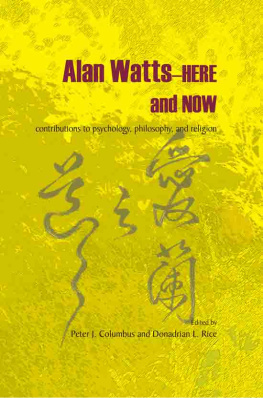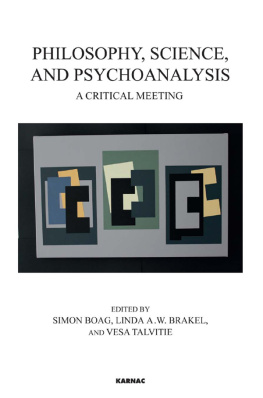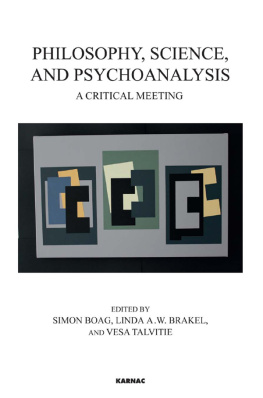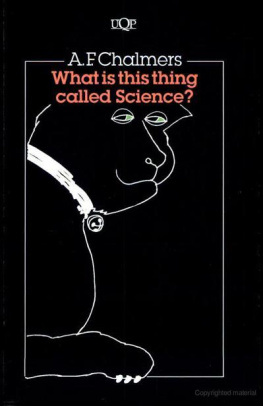Alan Bass - Fetishism, Psychoanalysis, and Philosophy: The Iridescent Thing
Here you can read online Alan Bass - Fetishism, Psychoanalysis, and Philosophy: The Iridescent Thing full text of the book (entire story) in english for free. Download pdf and epub, get meaning, cover and reviews about this ebook. year: 2017, genre: Religion. Description of the work, (preface) as well as reviews are available. Best literature library LitArk.com created for fans of good reading and offers a wide selection of genres:
Romance novel
Science fiction
Adventure
Detective
Science
History
Home and family
Prose
Art
Politics
Computer
Non-fiction
Religion
Business
Children
Humor
Choose a favorite category and find really read worthwhile books. Enjoy immersion in the world of imagination, feel the emotions of the characters or learn something new for yourself, make an fascinating discovery.

Fetishism, Psychoanalysis, and Philosophy: The Iridescent Thing: summary, description and annotation
We offer to read an annotation, description, summary or preface (depends on what the author of the book "Fetishism, Psychoanalysis, and Philosophy: The Iridescent Thing" wrote himself). If you haven't found the necessary information about the book — write in the comments, we will try to find it.
Alan Bass: author's other books
Who wrote Fetishism, Psychoanalysis, and Philosophy: The Iridescent Thing? Find out the surname, the name of the author of the book and a list of all author's works by series.
Fetishism, Psychoanalysis, and Philosophy: The Iridescent Thing — read online for free the complete book (whole text) full work
Below is the text of the book, divided by pages. System saving the place of the last page read, allows you to conveniently read the book "Fetishism, Psychoanalysis, and Philosophy: The Iridescent Thing" online for free, without having to search again every time where you left off. Put a bookmark, and you can go to the page where you finished reading at any time.
Font size:
Interval:
Bookmark:

Based on a rigorous re-reading of Freuds text on fetishism, and on the fundamental psychicmechanism at its source, Verleugnung (disavowal), which simultaneously links belief andnon-belief in an undesirable perception and the maintenance of a counter-belief, Alan Bassachieves the great feat of showing how all thinking about fetishism (from de Brosses, throughComte, Heidegger, Merleau-Ponty and even Heisenbergs principle of uncertainty) remainshaunted by this question. If fetishism in the strict sense takes the ersatz, the substitute, forthe missing thing itself, every experience of substitution of one representation in the place ofanothertheir distinction and their connectionclarifies the fundamental process of differentiation itself, of a thinking of difference (Derrida), and of the very process of symbolization.
New consequences for the understanding and interpretation of any transference are given theirfull importance and are perfectly elucidated.
Rene Major, Director, Institute for Advanced Psychoanalytic Studies, Paris, France.
With great skill, the author plots his course through a dazzling array of writers and texts,although the overall effect is not to register dispersion as much as to trace out complex andsometimes unexpected connections across a wide body of literary and philosophical work. Infact, the book is very well choreographed, bringing together those philosophical and literaryvoices with a great deal of elegance and poise. As much as it is an intellectually challengingbook, it is also a highly readable one, and beautifully written.
Simon Morgan Wortham, PVC Dean, Faculty of Arts and Social Sciences, Kingston University London, UK.
Alan Basss book provides an example of the finest comparatist work in the humanities andattests to the remarkable illumination that true interdisciplinary work can produce. I believethis unusual and provocative book will appeal to scholars of literature, philosophy, and psychoanalysis, as well as to historians and political theorists. The breadth of this book will makeit a precious resource for students and teachers alike. It provides an invaluable rethinking of theextraordinary legacy to contemporary thinking that is the concept of fetishism.
Elizabeth Rottenberg, DePaul University, USA.
This page intentionally left blank
FETISHISM, PSYCHOANALYSIS,
AND PHILOSOPHY
Fetishism, Psychoanalysis, and Philosophy explores how and why Freuds late work on fetishism led to the beginnings of a re-formulation of the theory and practice of psychoanalysis. Freud himself, however, was unaware of the long history of the concept of fetishism, a history crucial to understanding it.
This book contains three main thrusts. One is historical, tracing the development of the concept of fetishism from the sixteenth century onwards. The focus here is on two important thinkers: Charles de Brosses from the eighteenth century and Auguste Comte from the nineteenth. The second thrust is philosophical. Fetishism is always about the relation between the mind and things. Martin Heidegger, Jacques Derrida, and Maurice Merleau-Ponty have made essential contributions in this area, contributions which have important scientific relevance. The third thrust integrates the historical, philosophical, and psychoanalytic investigations of fetishism. It also looks at Wallace Stevens poetic meditation on mind and thing, which helps illuminate everything that precedes.
This comprehensive book features careful integration of the historical, philosophical, and psychoanalytic investigations of fetishism. It will contribute to opening new ways of thinking about the mind and how it is structured so that fetishism is possible. Fetishism, Psychoanalysis, and Philosophy will appeal to psychoanalysts and psychoanalytic psychotherapists as well as philosophy scholars.
Alan Bass, PhD is a psychoanalyst practicing in New York City. A training analyst and faculty member at the Institute for Psychoanalytic Training and Research and the Contemporary Freudian Society, he is also on the graduate philosophy faculty of the New School for Social Research. He is author of two previous books ( Difference and Disavowal: The Trauma of Eros and Interpretation and Difference: TheStrangeness of Care), translator of four books by Jacques Derrida, and editor of TheUndecidable Unconscious, A Journal of Deconstruction and Psychoanalysis.
This page intentionally left blank

FETISHISM,
PSYCHOANALYSIS,
AND PHILOSOPHY
The Iridescent Thing
Alan Bass
First published 2018
by Routledge
2 Park Square, Milton Park, Abingdon, Oxon OX14 4RN
and by Routledge
711 Third Avenue, New York, NY 10017
Routledge is an imprint of the Taylor & Francis Group, an informa business
2018 Alan Bass
The right of Alan Bass to be identified as author of this work has been asserted by him in accordance with sections 77 and 78 of the Copyright, Designs and Patents Act 1988.
All rights reserved. No part of this book may be reprinted or reproduced or utilised in any form or by any electronic, mechanical, or other means, now known or hereafter invented, including photocopying and recording, or in any information storage or retrieval system, without permission in writing from the publishers.
Trademark notice: Product or corporate names may be trademarks or registered trademarks, and are used only for identification and explanation without intent to infringe.
British Library Cataloging-in-Publication Data
A catalogue record for this book is available from the British Library Library of Congress Cataloging-in-Publication Data
Names: Bass, Alan, author.
Title: Fetishism, psychoanalysis, and philosophy: the iridescent thing /
Alan Bass.
Description: Abingdon, Oxon; NewYork, NY: Routledge, 2018. | Includes bibliographical references and index.
Identifiers: LCCN 2017035536 (print) | LCCN 2017045375 (ebook) |
ISBN 9781315150062 (Master) | ISBN 9781351368667 (Web PDF) |
ISBN 9781351368650 (ePub) | ISBN 9781351368643 (Mobipocket/
Kindle) | ISBN 9781138556409 (hardback : alk. paper) | ISBN
9781138556416 (pbk. : alk. paper)
Subjects: LCSH: FetishismHistory. | FetishismPhilosophy. |
Psychoanalysis.
Classification: LCC GN472 (ebook) | LCC GN472 .B27 2018 (print) |
DDC 202/.109dc23
LC record available at https://lccn.loc.gov/2017035536
ISBN: 978-1-138-55640-9 (hbk)
ISBN: 978-1-138-55641-6 (pbk)
ISBN: 978-1-315-15006-2 (ebk)
Typeset in Bembo
by Deanta Global Publishing Services, Chennai, India
CONTENTS
This page intentionally left blank
Introduction
This is my third foray into the inexhaustible topic of fetishism. My point of departure for this work is Freuds embryonic rethinking of his entire theory in relation to fetishism. In his very late work, Freud surprisingly came to see fetishism as the model of all psychic conflict. Because Freud had almost always taken neurosis as his model, the late shift to fetishism potentially dislodges all his basic ideas, starting with the nature of unconscious processes themselves. My two previous books, Difference
Next pageFont size:
Interval:
Bookmark:
Similar books «Fetishism, Psychoanalysis, and Philosophy: The Iridescent Thing»
Look at similar books to Fetishism, Psychoanalysis, and Philosophy: The Iridescent Thing. We have selected literature similar in name and meaning in the hope of providing readers with more options to find new, interesting, not yet read works.
Discussion, reviews of the book Fetishism, Psychoanalysis, and Philosophy: The Iridescent Thing and just readers' own opinions. Leave your comments, write what you think about the work, its meaning or the main characters. Specify what exactly you liked and what you didn't like, and why you think so.









